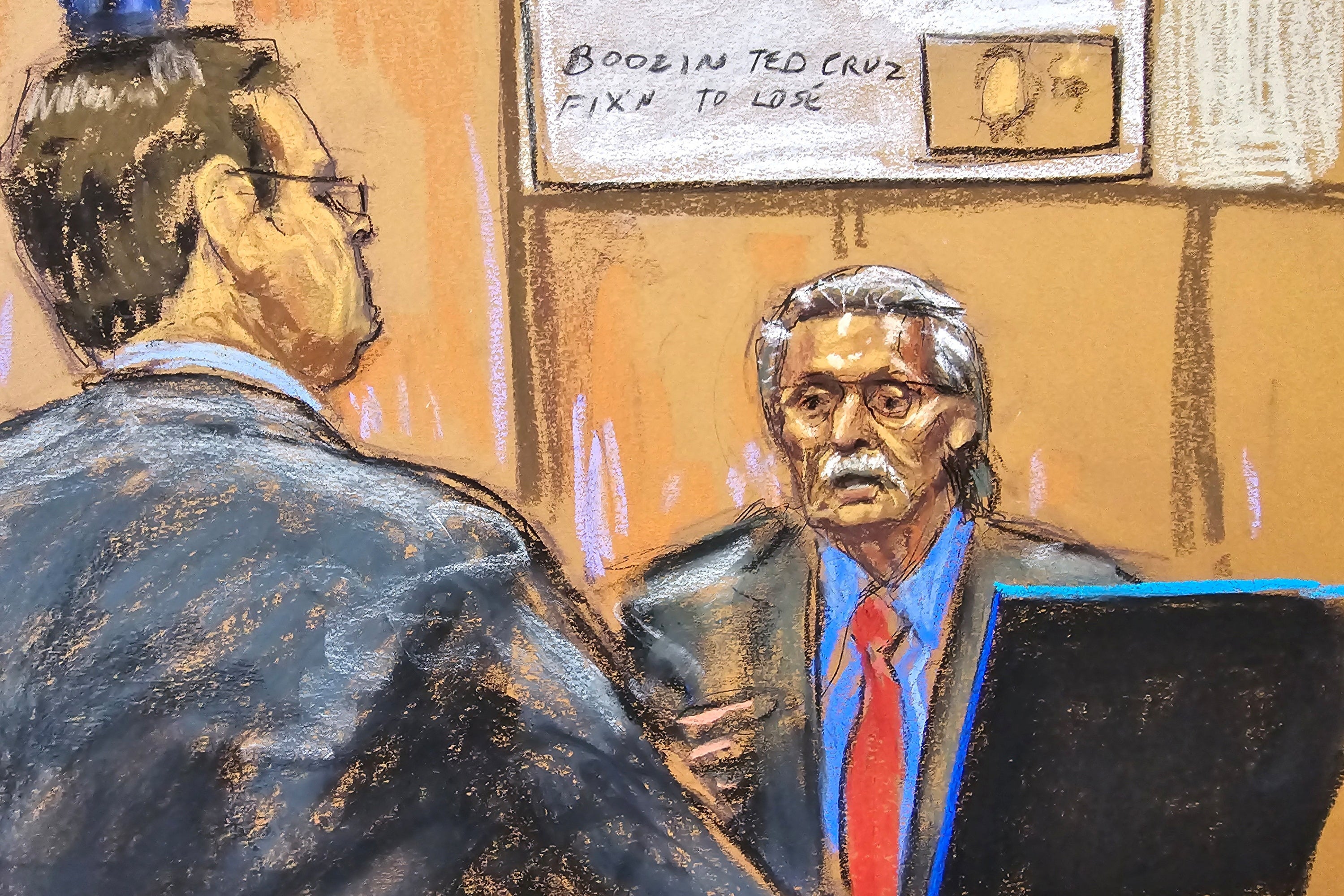Manhattan prosecutors reveal election crime driving Trump’s hush money case
The former president faces felony charges based on misdemeanour crimes. The DA’s office is beginning to show what elevates the hush money scheme to an election interference plot
Your support helps us to tell the story
This election is still a dead heat, according to most polls. In a fight with such wafer-thin margins, we need reporters on the ground talking to the people Trump and Harris are courting. Your support allows us to keep sending journalists to the story.
The Independent is trusted by 27 million Americans from across the entire political spectrum every month. Unlike many other quality news outlets, we choose not to lock you out of our reporting and analysis with paywalls. But quality journalism must still be paid for.
Help us keep bring these critical stories to light. Your support makes all the difference.
A critical question hovering over Donald Trump’s criminal case in New York is whether prosecutors can convince a jury that the former president’s alleged falsification of business records can be tied to a “primary” crime.
Mr Trump is charged with 34 counts of falsifying business records, which – on their own – are misdemeanor offences.
But Manhattan prosecutors have elevated those charges to felonies by tying them to another offence – one that involves a conspiracy to manipulate an election.
Manhattan District Attorney Alvin Bragg and his office believe the case is relatively straightforward when it comes to the so-called hush money scheme – there are cheques, business ledgers, emails and text messages that allegedly point to a cover-up to classify payments to adult film star Stormy Daniels as “legal expenses”.
Those charges are bumped up to felonies if they are done with the intent to “commit another crime or to aid or conceal” one.
The crimes at the heart of the case stem from an alleged scheme to bury politically compromising stories involving then-candidate Mr Trump and his alleged affairs in order to protect his chances of winning the 2016 presidential election.
On Tuesday, prosecutors suggested that Mr Trump falsified those business records with the intent to commit or conceal a conspiracy to “promote” his election through “unlawful means”.
Under section 17-152 of New York election law, “any two or more persons who conspire to promote or prevent the election of any person to a public office by unlawful means and which conspiracy is acted upon by one or more of the parties thereto, shall be guilty of a misdemeanor”.
Prosecutors began outlining those “other” crimes in court filings one month after Mr Trump was indicted last year. Justice Juan Merchan allowed them to move forward on three of them – including section 17-152, as well as crimes involving tax fraud and campaign finance violations.
During witness testimony this week, Manhattan Assistant District Attorney Joshua Steinglass hinted that his challenged line of questioning was relevant to the “primary” underlying crime under section 17-152.

While questioning former National Enquirer publisher David Pecker about the “catch and kill” scheme arranged with Mr Trump and his then-personal attorney and “fixer” Michael Cohen, Mr Steinglass asked about Mr Pecker’s meetings with Steve Bannon, one of Mr Trump’s chief advisers.
Mr Bannon told Mr Pecker that they would “work very, very well together” during Mr Trump’s 2016 campaign, the former tabloid chief testified.
Defence attorney Emil Bove objected to the questions, alleging hearsay. But Mr Steinglass argued that questions tying Mr Pecker’s work with the campaign struck at the heart of the “primary” election crime that is driving the prosecution’s case.
During opening statements on Monday, Assistant District Attorney Matthew Colangelo also underscored the stakes of the case against the former president.
“This case is about a criminal conspiracy and a cover-up,” he said. “The defendant Donald Trump orchestrated a criminal scheme to corrupt the 2016 presidential election. Then he covered up that criminal conspiracy by lying in his business records, over and over and over again.”
Hush money, non-disclosure agreements and “catch-and-kill” arrangements aren’t illegal, per se, and “no politician wants bad press,” as Mr Colangelo said.
“But the evidence at trial will show that this was not spin or communications strategy,” he added. “This was a planned, coordinated, long-running conspiracy … It was election fraud. Pure and simple.”
Mr Trump has pleaded not guilty to all charges and has accused the district attorney’s office of running an election interference campaign against him.
Subscribe to Independent Premium to bookmark this article
Want to bookmark your favourite articles and stories to read or reference later? Start your Independent Premium subscription today.
